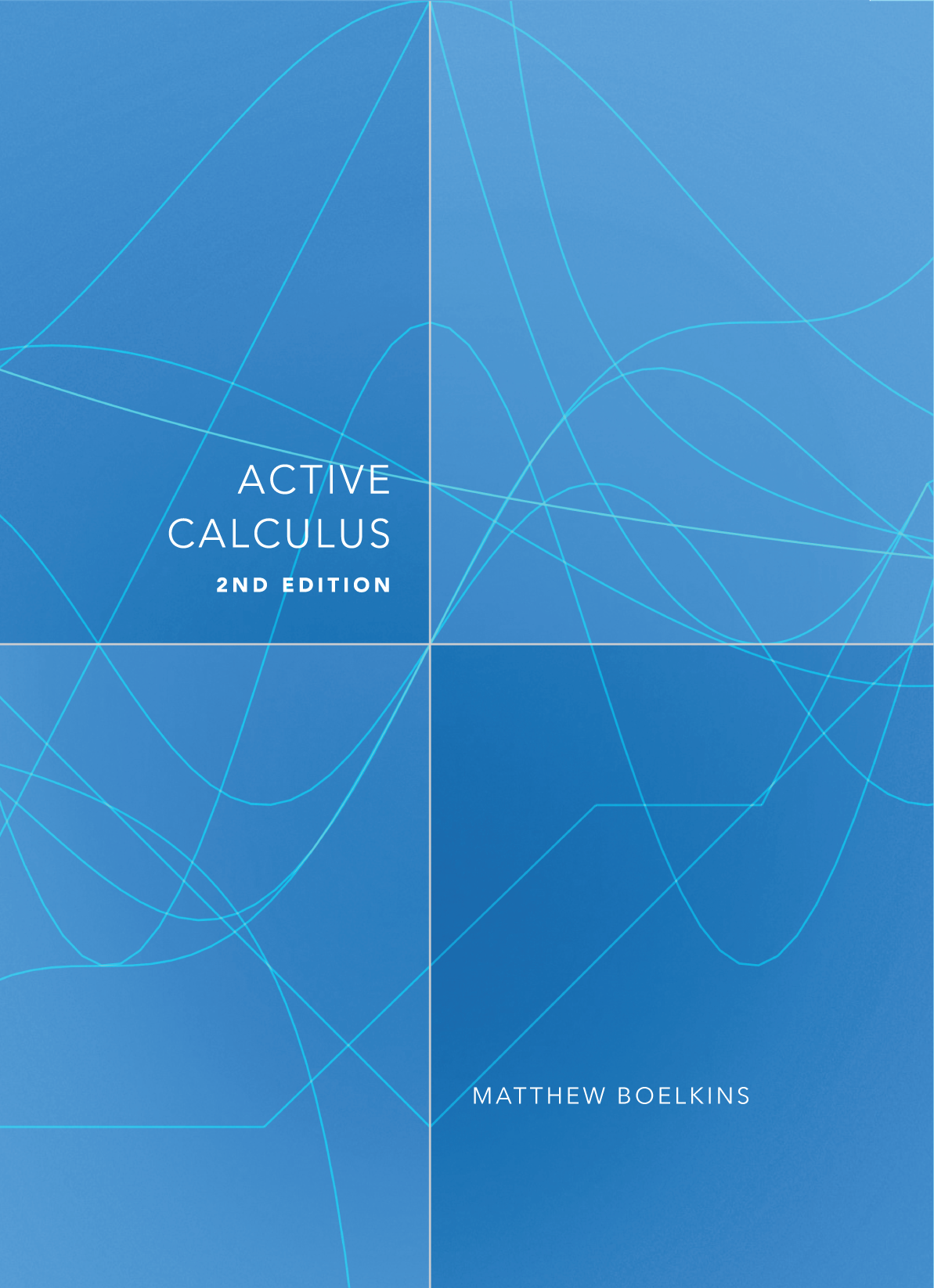Question 9.4.1.
We already know we can do the following problem using u-substitution, with \(u = \sin(13 x )\)
\(\displaystyle \int \sin^{12}\mathopen{}\left(13x\right)\cos\mathopen{}\left(13x\right) \,dx \ = \ \)
We see that \(\displaystyle \int \sin^{12} (13 x) \cos^3(13 x) \,dx \ \) is solved similarly, because
-
the exponent of \(\cos\) is odd.
-
the exponent of \(\sin\) is odd.
-
None of the above
So we’ll still use u-substitution with \(u = \sin(13 x )\text{,}\) after first rewriting \(\cos^3 (13 x) = \cos^2(13 x) \cos(13 x )\) and using a trig identity.
Select the trigonometric identity needed to solve this problem.
-
\(\displaystyle \displaystyle \cos^2 u = \frac{1+\cos(2 u)}{2}\)
-
\(\displaystyle \displaystyle 1+ \cot^2 u = \csc^2 u\)
-
\(\displaystyle \displaystyle \tan^2 u +1 = \sec^2 u\)
-
\(\displaystyle \displaystyle \sin^2 u = \frac{1-\cos(2 u)}{2}\)
-
\(\displaystyle \displaystyle \sin^2 u + \cos^2 u = 1\)
-
None of the above
Finally, put it all together to calculate \(\displaystyle \int \sin^{12}\mathopen{}\left(13x\right)\cos^{3}\mathopen{}\left(13x\right) \,dx \ = \ \)
Hint.
The integral involves \(\sin u\) and \(\cos u\) where the exponent of \(\cos u\) is an odd, positive integer, namely, 3. So we factor out a copy of \(\cos(13 x)\) and use the identity \(\sin^2 u + \cos^2 u = 1\) to turn the remaining \(\cos^2(13 x)\) into an expression involving \(\sin^2(13 x)\text{.}\)
Thus the integral can be rewritten as
\begin{equation*}
\int \sin^{12}\mathopen{}\left(13x\right)\cos^{3}\mathopen{}\left(13x\right) \, dx = \int \sin^{12} (13 x) \cos^2(13 x) \cos(13 x) \, dx
\end{equation*}
\begin{equation*}
= \int \sin^{12} (13 x) \bigg(1-\sin^2(13 x)\bigg) \cos(13 x) \, dx
\end{equation*}
and we use u-substitution.
Letting \(u= \sin (13 x)\) so \(du = 13 \cos (13 x) \, dx\) and thus \(\displaystyle dx = \frac{ du}{13 \cos (13 x)}\text{.}\)
This turns the integral into
\begin{equation*}
\int u^{12} (1-u^2) \cos(13 x) \, \frac{ du}{13 \cos (13 x)} = \frac{1}{13}\int u^{12} (1-u^2) \, du
\end{equation*}
which can be multiplied out, and then each part integrated by power rule.

